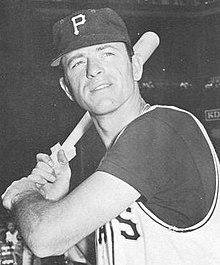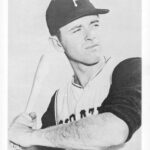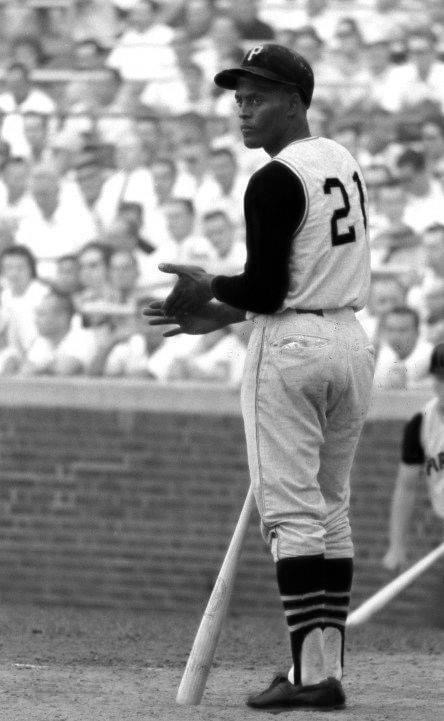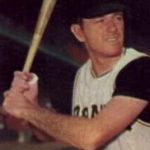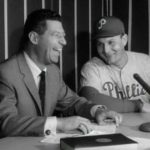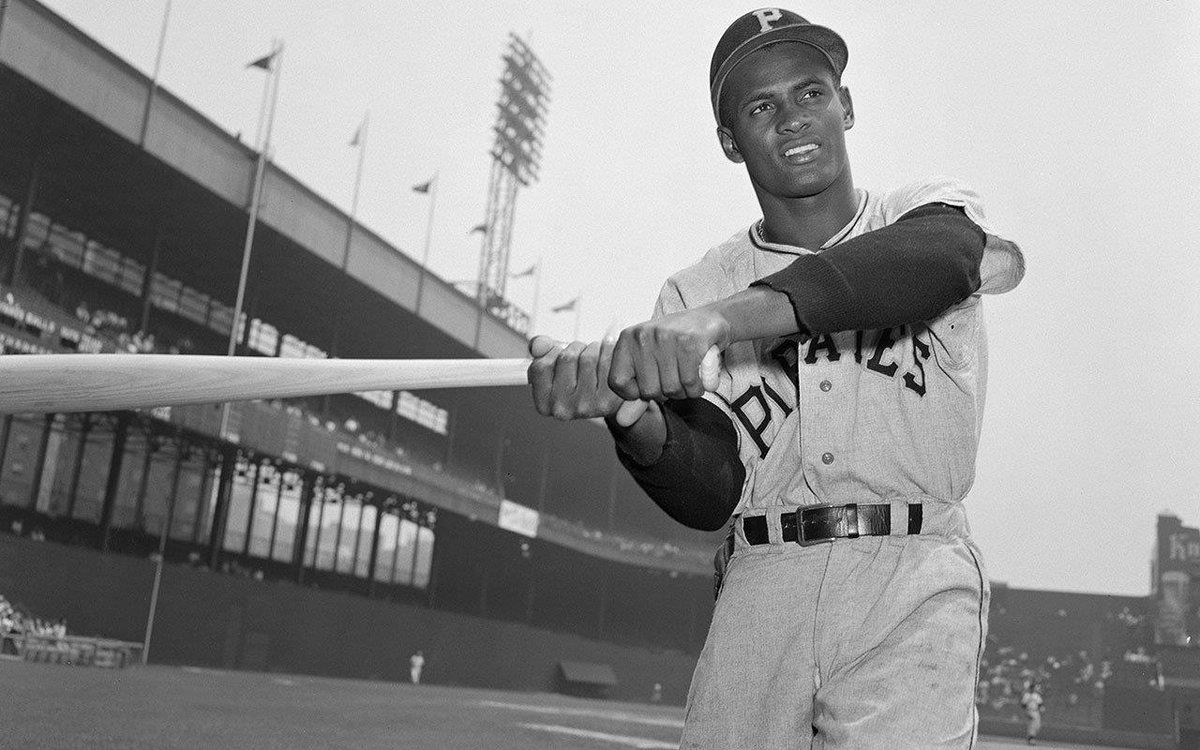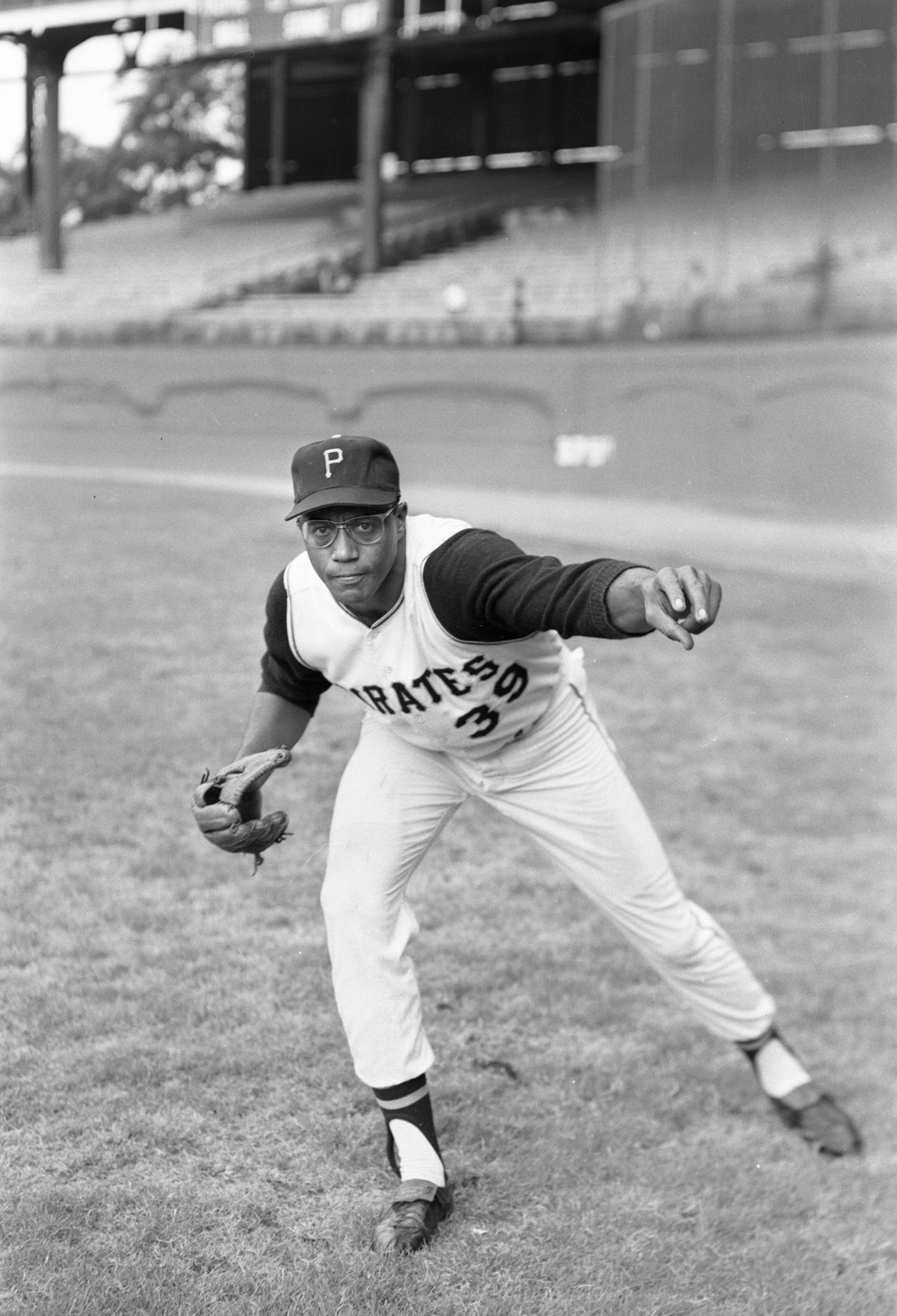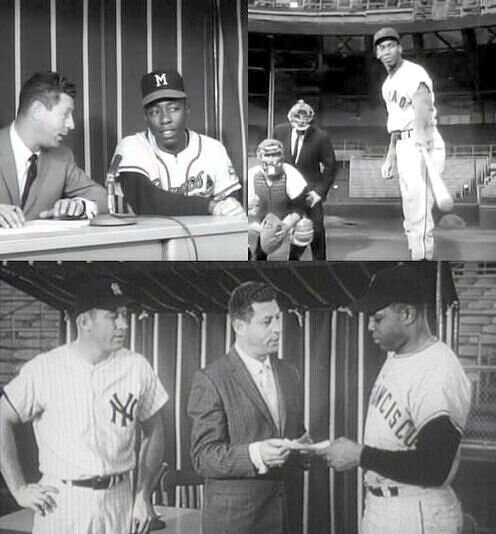Dick Stuart Stats & Facts
Special Memory or Event? Want to have some fun? Advertise your business? Dedicate this page
Dick Stuart
Position: First Baseman
Bats: Right • Throws: Right
6-4, 212lb (193cm, 96kg)
Born: November 7, 1932 in San Francisco, CA
Died: December 15, 2002 in Redwood City, CA
Buried: Cremated
High School: Sequoia HS (Redwood City, CA)
Debut: July 10, 1958 (11,566th in major league history)
vs. CHC 5 AB, 1 H, 1 HR, 2 RBI, 0 SB
Last Game: May 27, 1969
vs. CLE 1 AB, 0 H, 0 HR, 0 RBI, 0 SB
Full Name: Richard Lee Stuart
Nicknames: Stu, Dr. Strangeglove, Boston Strangler, Stonefingers or The Man With the Iron Glove
View Player Info from the B-R Bullpen
View Player Bio from the SABR BioProject
Notable Events and Chronology
Biography
He should have been from Texas, because everything he did was big. Dick Stuart hit big homeruns, had big strike out totals, committed big errors and loudly proclaimed his big boasts. Not surprisingly, Stuart evoked big cheers and big criticism from Pirate fans and remains one of the biggest legends in Pirate history despite a relatively brief five year career in Pittsburgh.
Stuart signed for a $10,000 bonus in 1951. Originally an outfielder, he went to Modesto and had decidedly unimpressive stats as an 18-year-old, batting just .229 with four homeruns in 66 games. Transferred to Billings in another Class C league in 1952, Stuart raised his average 84 points and was the Pioneer League’s top slugger, hitting 31 homeruns and driving in 121. he also led the league in hits, runs and total bases. Stuart spent the next two years in the military, but apparently the service did little to help him learn to follow orders. When he demanded only clean balls be pitched to him in batting practice at Class A New Orleans, he was shipped out of the country. Stuart did not hit well for the Mexico City Tigers (.148 in 27 at bats) and the Pirates sent him back to Billings to regain his stroke. Stuart pounded a league high 32 homeruns and drove in 104 runs in just 101 games while again hitting over .300.
Promoted to Lincoln of the Class A Western League, Stuart continued to build his legend as a minor league slugger. He hit 66 homeruns, still one of the highest totals in minor league history and the most ever hit by a player at any level of the Pirates’ organization. He brashly predicted he would crash the Pirates’ outfield in 1957, but his fielding was abominable and major league caliber pitchers kept him off balance in spring training.
Moved to firstbase fulltime in 1957, Stuart continued to strike out far too often in the higher minor leagues, fanning a combined total of 63 times in 46 games at Hollywood and Atlanta. Demoted back to Lincoln, Stuart continued to strike out at a rate of more than once per game, although when he connected he drove the ball far. His 31 homeruns at Lincoln gave him a total of 45 roundtrippers at his three minor league stops for the year.
The Pirates traded for veteran slugger Ted Kluszewski prior to 1958. When asked about his new competition for the Pittsburgh firstbase job, Stuart boasted, “I’ll hit 50 homeruns and force them to trade Kluszewski.” Again, Stuart didn’t make the Pirates, but this time when he went to the minors, Stuart had little problem hitting. Playing at AAA Salt Lake City, Stuart blasted 31 homeruns and drove in 82 runs in 80 games. Meanwhile in Pittsburgh, “Big Klu” continued to suffer from the back problems which had greatly reduced his power. With the Pirates needing a longball threat to compliment Frank Thomas, Joe L. Brown recalled the player he had previously chided for his lack of maturity. Stuart had some problems adjusting at first, although he homered in his first two games. As in the minors, when he connected, the ball often left the park. Once he got used to the ability of major league pitchers to change speeds, Stuart started to not only hit the ball hard, but also consistently. He knocked in 24 runs in his first 25 games and finished the year with 16 homeruns and 48 rbi’s in less than one-half a season. While his defense was poor and while he missed his prediction of hitting 50 homeruns (his combined major and minor league total was 47), Stuart won raves for his hitting and the Pirates steamed into second place, rising from seventh after Stuart’s recall.
Although Stuart played winter ball to work on his defense, he showed little fielding improvement in 1959. Kluszewski was still around, but Stuart’s hitting put him on the bench until the former star was dealt to the White Sox in August. Stuart raised his average to .297, reduced his strike outs per at bats and hit 27 homeruns while playing in just 118 games, including those in spacious Forbes Field.
In large part to Stuart’s fielding being the worst of any firstbaseman in the major leagues, he developed a love-hate relationship with Pirate fans, who booed his errors and mockingly cheered when he made a routine play. He was called “The Ancient Mariner” from the classic poem in which the title character was said to “stoppeth one in three,” but the name which stuck the most was Dr. Strangeglove.
Stuart got off to a slow start in 1960 and Danny Murtaugh occasionally replaced him with veteran Rocky Nelson. He still led the pennant winning Pirates with 23 homeruns and was third with 83 rbi’s, raising his average to .260 by season’s end. Still, his numbers were below what the Pirates and their fans had hoped for and when he collected just three singles in 20 at bats in the World Series, Stuart found himself replaced by Nelson at firstbase in Game 7. In the bottom of the ninth, Murtaugh sent Stuart out to pinch hit, but Dick never got the chance to hit as Bill Mazeroski’s homerun ended the Series with Stuart kneeling on deck.
Stuart had an excellent season in 1961. He set new highs in every offensive category, finishing with 35 homeruns , 117 rbi’s and a .301 average. He figured he would have outhomered Roger Maris if he had been playing in a park friendlier to his power. Stuart’s 35 homers remains the team record for a firstbaseman.
However, Stuart’s defense was still ridiculed. He was once cheered when he caught a hot dog wrapper which was blowing in the wind. When leftfielder Bob Skinner was booed for dropping a flyball, Stuart rode his teammate for taking away his fans.
If Stuart thought he had heard the taunts of fans during his first four years in the majors, it was nothing compared to what he experienced in 1962. He batted only .228 and hit only 16 homeruns. Fans were merciless, but in general, Stuart handled their boos well and for all his boasting could make fun of himself as well. After he had a particularly terrible game during a 6-3 loss to the Giants, fanning three times, allowing a ball to get past him for what was ruled a hit and dropping a throw to let in two runs, he quipped, “The score should have read Stuart 6, Pirates 3.”
Stuart made it known that while he was not asking for a trade, he would not object to one. He stated he hoped he could play in a cozier park, such as Wrigley Field or Fenway. When Joe L. Brown sent him to the Red Sox in November for Don Schwall and Jim Pagliaroni, Stuart publicly thanked the general manager. He maintained his sense of humor, kidding Murtaugh when he stopped by Forbes Field that winter, “Remember me? I used to work here.” He also good naturedly kidded Pittsburghers by wondering aloud who they were now going to boo.
Stuart didn’t break Maris’s record despite playing his homegames in Fenway in ’63, but he did lead the American League with 118 rbi’s and hit a career high 42 homeruns. He topped 110 rbi’s again in 1964 and added 33 homeruns before wearing out his welcome in Boston. Traded to the Phillies, Stuart hit 28 homeruns and knocked in 95 more runs, but his average dipped to .234. After being pushed into a backup role with the Mets and Dodgers in 1966, Stuart played two seasons in Japan, one which was successful (.280, 33 homeruns) and one which was not (.217, 16 homeruns). He returned to the United States and played briefly for the Angels, trying to solve that franchise’s firstbase problems, but he homered just once in 51 at bats before being released.
Stuart was the Pirates’ regular firstbaseman for 4 ½ years and led the league in errors five times. That’s right, not only did he lead the league in errors every season he played regularly, but he also booted more than anyone in 1958, when he played in only 67 games. But his slugging remains almost as legendary as his fielding. He was the only player ever to homer over the 457 mark at Forbes Field and he bounced the ball to that spot on other occasions. Stuart’s 117 homeruns in his brief Pirate career still place him in a 12th place tie with Andy Van Slyke on the team’s all-time list and he averaged 32 homeruns and 108 rbi’s per 154 games played in the Pirates’ sleeveless uniform jersey. Some have argued Stuart’s biggest fault was his lack of timing. If he had been born 10 years later, he could have taken advantage of the designated hitter rule, but unless he had either broken Maris’s record or hit over 500 career homeruns,
@ET-DC@eyJkeW5hbWljIjp0cnVlLCJjb250ZW50IjoicG9zdF90YWdzIiwic2V0dGluZ3MiOnsiYmVmb3JlIjoiTGVhcm4gTW9yZSBhYm91dCB0aGUgdGVhbXMsIHBsYXllcnMsIGJhbGwgcGFya3MgYW5kIGV2ZW50cyB0aGF0IGhhcHBlbmVkIG9uIHRoaXMgZGF0ZSBpbiBoaXN0b3J5IC0gLSAtIC0gLSAtIC0gIiwiYWZ0ZXIiOiIiLCJsaW5rX3RvX3Rlcm1fcGFnZSI6Im9uIiwic2VwYXJhdG9yIjoiIHwgIiwiY2F0ZWdvcnlfdHlwZSI6InBvc3RfdGFnIn19@

